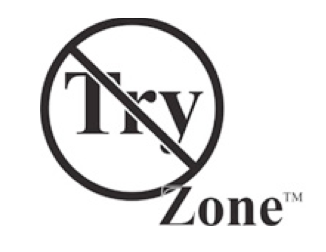Buying leads can be a great way to get some sales in the door quickly, but there are also a few situations where buying leads may not be a good idea.
In one of my upcoming podcasts I will be talking about different levels of marketing. The basic premise of marketing levels is that Level 1 marketing tactics are easy to implement (anyone can do it), don’t require much up-front investment of time or money, get to their results quickly (either positive or negative), and are non-unique (meaning you’re not different from anybody else). Typically, these are methods where the more you spend the more you get.
One popular Level 1 marketing tactic is buying leads. The theory is that someone else has invested the time and effort to build an online brand, put the effort into search engine optimization, and has contact information for prospective customers to sell to you. In theory, this is a fantastic idea. I can skip the time and investment needed to build up an online brand and a marketing campaign, and can simply pay for the number of leads that I want to pursue. Hopefully I can get instant sales results as well.
There are situations where this works, and this can work really well for some people. I have some clients who have done really well buying leads. I also have a number of clients who have found out what to avoid when buying leads.
Number one is to be sure you’re buying real leads. Unfortunately, some companies sell names or contact information of people who haven’t actually indicated an interest in the service that you’re offering. A real lead would be someone who has indicated an interest in hiring a service provider at some point. A fake one would be somebody who maybe just bought the name from a list and is reselling it.
Second, you want to make sure you’re buying quality leads. I ran a big marketing marketing campaign for a compliance software solution. We got a number of leads in from different trade shows that we went to. We also got leads in through search engine optimization, through getting our web pages found.
When we crunched the numbers we found out that the leads obtained through SEO were at least a hundred times more valuable than the leads obtained from a trade show. Sure, everybody had opted in. Everyone at the trade show said that they were interested in follow-up; they wanted to get more information. Everybody who came to our website said that they were interested in follow-up and they wanted to get more information.
But the fact is that probably 30-40% of the people that came in on the website ended up buying a software package that was worth anywhere from $30,000 to $70,000 for the contract price. Of the people who told us at the trade show that they wanted more information, that they were interested in the product and wanted more follow-up, less than one of a hundred actually made a purchase. What we found was that the ones who opted in on our website, that had come in through search engine optimization, were really, desperately wanting a solution to their problem. The ones who opted in at the trade show may have been just excited in the moment, or maybe they wanted to be entered into our drawing, or maybe they just told us they’re interested so they could take more candy. Who knows?
The cost of these leads was far higher than what we spent on obtaining the lead. Of course, going to the trade show you have all the costs of the booth and sending the people there, etc., but it’s not just the cost per lead. It’s the amount of time spent. So when you factor in all the time the sales reps spent following up on these leads that were not really that interested, the costs were much higher than the actual sticker price, whereas the cost or the time spent following up on the people who opted in through the search engine proved to be extremely valuable.
I’ll give you another example of where buying leads can not work for you. I had a real estate client that wanted a tool to give people on their website an estimate of their home value. A number of companies have databases of home values and they maintain them and calculate them with different methods. I went to one company that that offered this tool for realtors to put on their website, and before I put it on my client’s website I tested the tool.
So I filled out my name and address and said, “Hey, can I get the current value of my home?” That’s what the web page said it would offer. Give us your name and email address and phone number, and then we will email you a report that says how much your home is worth.
I filled out the form and entered it, and I did not receive a report with my home value. Instead I received a link to local realtors. Then, immediately, within a matter of minutes, I began getting phone calls. And I continued getting phone calls for weeks from different realtors who had been told that I wanted to buy a home and that I was searching for a home in the neighborhood. And I received lots of calls from mortgage brokers as well, offering me a loan, because they had been told that I was buying a home.
So this company obtained my contact information on a false pretext and they turned around and sold it to dozens of people, also on a false pretext. I had no interest in purchasing a home. I owned a home, and I was just curious how much my home was worth. So all of those people paid for a lead of someone who wanted a mortgage or someone who wanted to purchase a home, and the information was totally bogus.
I have clients that have experienced something similar with other companies where they purchased leads and called up the leads that they purchased, and the people were irate. They were upset. They said they’re not interested, they never wanted to be called, and they’ve been hounded by other callers as well.
Of course, if someone does fill out a form to get quotes, they can be very serious about making a purchase. They could also fill out a form and forget that they actually did. That’s a possibility.
Some of my clients have had some success with HomeAdvisor. That’s one that does have a very legitimate approach to collecting and selling leads. Most of my clients that have used that service have typically only gotten moderate results, but some have done really well. There are two keys to success with buying leads from HomeAdvisor.
(1) You have to call right away. HomeAdvisor sells the lead to several people at once, so if you are not able to follow up immediately when a lead comes in, you’re at a big disadvantage.
(2) You need to filter what you’re buying, and only buy leads for high-margin services. If you’re buying leads for low-ticket or low-margin services, the HomeAdvisor leads will be too expensive, and will erode your entire margin.
One of the factors that affect the value of leads you buy is that you don’t know exactly how interested people are when they’re filling out that particular form. The other is that you have a lot of people following up.
So if you don’t want to invest in your website, if you don’t want to invest in your online brand, if you don’t want to put in the effort to develop a good marketing campaign, then buying leads can be a real shortcut to filling your sales funnel and getting you started in business. If you find a good source and you find that it’s effective for you, it can be a great way to grow your business. Just be sure to do your due diligence about the company that you’re buying leads from. And also calculate the real costs of the lead, including your time spent on follow-up. And cut your losses early if the leads cost more than they’re worth, or if you could invest that same money somewhere else or that same time somewhere else and get a better result.
And, of course, if you’re ready to invest in your online presence in order to get highly qualified, exclusive leads through search engine optimization, feel free to email or call me so we can figure out a plan for you.


 There’s a fallacy that growth, forward progress and success is about getting more information. If I just read enough books, go to enough seminars, listen to enough audios, watch the right videos, then I’ll get the information that I need to be successful.
There’s a fallacy that growth, forward progress and success is about getting more information. If I just read enough books, go to enough seminars, listen to enough audios, watch the right videos, then I’ll get the information that I need to be successful.
 A fire is also a good illustration. A candle is fragile, and is easily blown out by a slight breath. A blow torch is resilient. It is not easily blown out, even in very windy conditions. But a forest fire is antifragile. The more you blow on it, the hotter it burns. If you throw logs in front of a forest fire to try to stop it, you only feed the fire.
A fire is also a good illustration. A candle is fragile, and is easily blown out by a slight breath. A blow torch is resilient. It is not easily blown out, even in very windy conditions. But a forest fire is antifragile. The more you blow on it, the hotter it burns. If you throw logs in front of a forest fire to try to stop it, you only feed the fire.